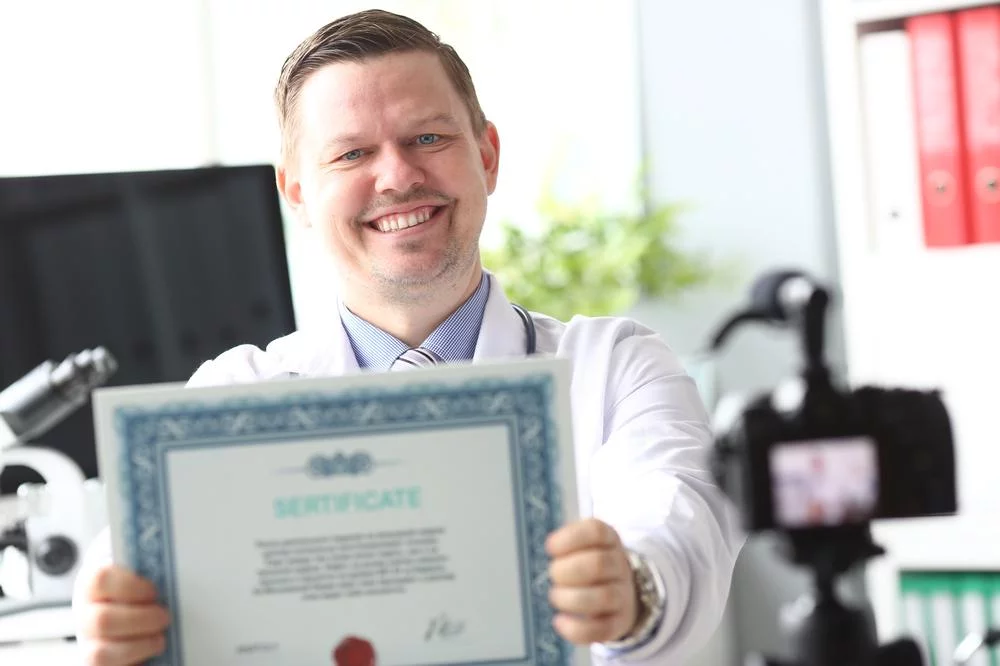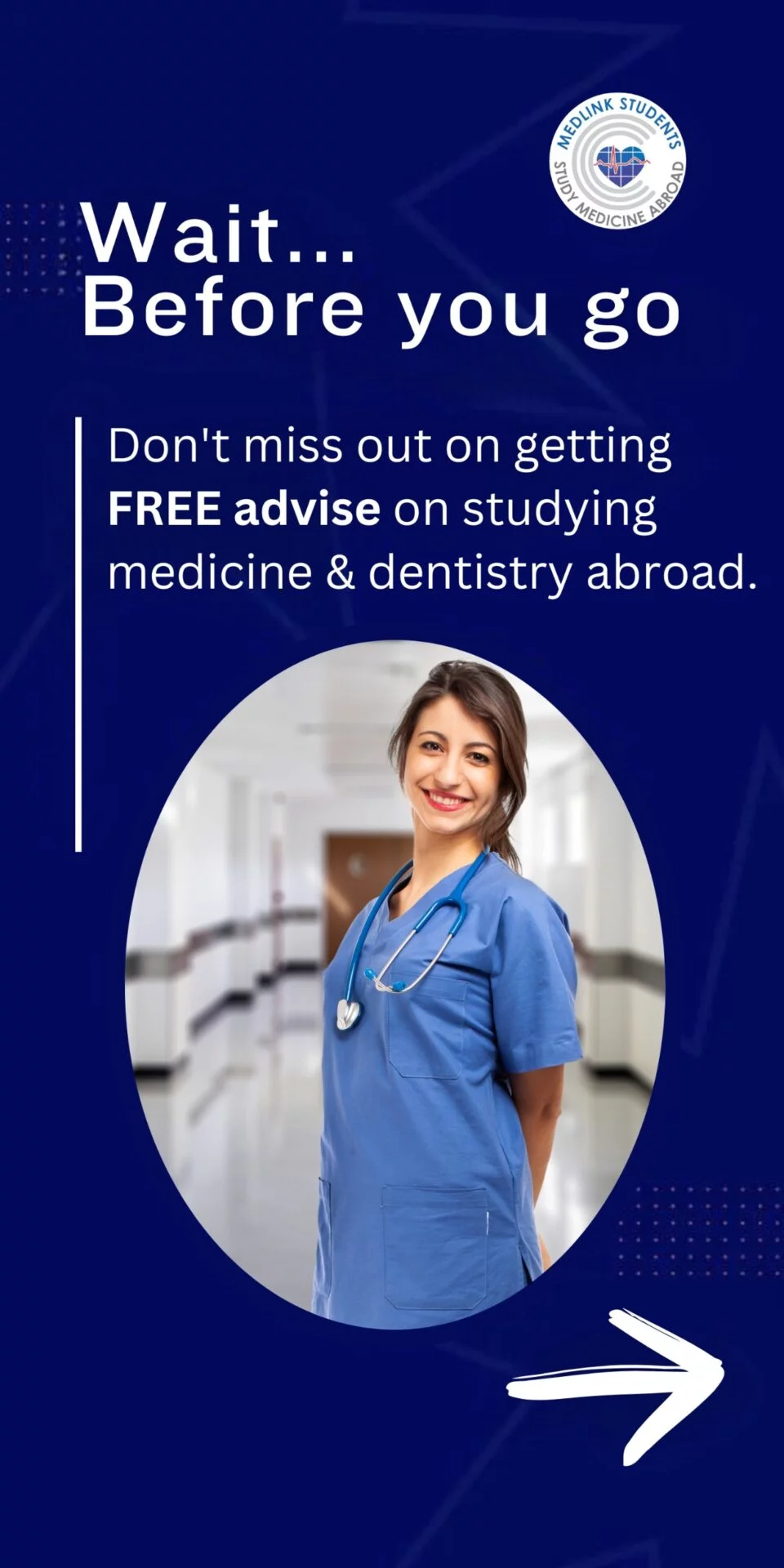Become a Doctor in the UK: GMC Registration Steps for Non-EU Medical Graduates

The UK’s National Health Service (NHS) has a great need for capable overseas-trained medical graduates who want to become doctors in the United Kingdom. Simply put, the higher education infrastructure in the UK is not capable of training enough medical graduates to meet the demand for healthcare. Instead, the UK relies on a stable influx of international graduates and doctors to join the NHS to keep up with the need for health-related services.
In this blog, we’ll give a straightforward guide for all non-EU medical graduates on how to register with the General Medical Council (GMC) and become a doctor in the UK.
The key takeaways of this blog are:
- The NHS has a high demand for overseas-trained medical graduates and doctors due to an insufficient amount of locally trained medical professionals. This means that if you are qualified, you have a very high likelihood of finding employment within the UK healthcare system.
- To become a doctor in the UK, non-EU medical graduates have to first register with the GMC.
- The requirements and steps for GMC registration are streamlined and transparent.
Table of Contents
- 1 Non-EU Graduates’ Step-by-Step Guide to Registering with the GMC
- 2 Conclusion
- 3 Q&A
- 3.1 How long does the GMC registration process take?
- 3.2 What happens if I fail the UKMLA?
- 3.3 How can I check if my medical qualification is recognised by the GMC?
- 3.4 Can I apply for GMC registration if I have gaps in my medical practice history?
- 3.5 Do I need to renew my GMC registration once I get it?
- 3.6 Can I work in the UK while my GMC application is being processed?
Non-EU Graduates’ Step-by-Step Guide to Registering with the GMC
The General Medical Council (GMC) is the regulatory body in the UK that is responsible for the quality of medical education and practise in the United Kingdom. In order to become a doctor in the UK, you must apply for GMC registration.
Here’s everything that you need to do to join the GMC register if you’ve already got your medical degree:
- Verify Your Medical Qualification
The most important step is to make sure that your primary medical qualification is recognised by the GMC. You can check this by using the list of acceptable overseas medical qualifications. The most crucial criteria include*:
- Studying conventional (allopathic) medicine in an accredited and recognised medical school.
- Going through 5,500+ hours of training in a period of over 3 years with significant clinical experience.
- Your medical qualification needs to be accepted and independently verified by the Educational Commission for Foreign Medical Graduates (ECFMG).
*There are special requirements if you’ve transferred between universities during your medical education. You can find these in the linked article.
- Complete an Internship or Clinical Experience
You must have completed a continuous 12-month internship or have equivalent clinical experience to be eligible to register with the GMC.
- Pass an English Language Proficiency Test
It goes without saying that in order to become a doctor in the UK, you need to be proficient in English. Typically, you prove your proficiency by passing the IELTS (International English Language Testing System) or the OET (Occupational English Test).
Native English speakers don’t need to take an English language test.
- Pass the UK Medical Licensing Assessment (UKMLA)
Before 2024, all non-EU graduates had to take the Professional and Linguistic Assessments Board test (PLAB) before registering with the GMC. However, from 2024, all overseas trained medical graduates will need to take the UKMLA. This is a standardised test which ensures that all doctors entering the GMC medical register have the knowledge, skills and qualities necessary to succeed in the field.
It consists of two main parts:
- Applied Knowledge Test (AKT), which is a computer-based test available four times a year.
- Clinical and Professional Skills Assessment (CPSA), which is carried out at the GMC's Clinical Assessment Centre.
The UKMLA will progressively phase out the PLAB, which will become the norm for registering with the GMC.
- Get a Certificate of Good Standing
Obtain a Certificate of Good Standing from relevant medical authorities to show that you are fit to practise medicine. This certificate has to:
- Include all of your work and experience.
- Confirm that you're eligible to practice medicine.
- Assure that you've never been suspended or prohibited from practising medicine.
- It should also include that the regulatory authority in the country you’ve graduated from does not question your good standing.


- Declare Your Fitness to Practise
Typically done through a series of questions which confirm that you are healthy and physically fit to practise medicine while also checking for character, conduct, ethics, and professionalism.
- Provide Details About Your Past 5 Years
The GMC asks applicants to give details about their medical and non-medical experience in the last 5 years, including studying, clinical experience, unemployment periods, etc.
- Gather Necessary Documentation
You will need to get all the required documents, including your primary medical qualification, proof of internship, certificate of good standing, and English language proficiency certificate.
If your documents aren’t in English, they will need to be translated, after which they will have to go through notarisation and legalisation.
- Apply for Registration
Once you’ve gathered everything and you’ve made sure that you’re eligible, you can submit your application through the GMC online registration portal.
As of April 2024, the cost of GMC registration for new applicants is:
- £25 for provisional registration
- £174 for full GMC registration
After this, you will have your documents and primary medical qualification independently verified, which may take up to 90 days. The GMC may ask you for additional documents or information during this phase of your application for registration.
- Attend an ID Check Appointment
If your application has been successful and no further information is required, you will be invited to an ID check, which must be completed within 6 months. The ID check can be done either via an app or in person at the GMC office in London.
Please note that you will need to provide the originals, copies, and translations of any documents that you’ve submitted.
Conclusion
That’s all there is to it. If you’re a qualified overseas medical graduate or doctor, the NHS will welcome you with open arms. Now that you know the GMC registration requirements and steps, you are ready to start your journey towards joining one of the most prestigious healthcare systems in the world and becoming a successful doctor in the UK.
If you’re an EU medical graduate and want to learn how to join the General Medical Council register, you can read our specialised guide on applying to the GMC.
Q&A
How long does the GMC registration process take?
Typically, the GMC registration process takes between 1 and 3 months. It takes so long because your documents and primary medical qualification need to be independently verified, before continuing on to the ID check.
What happens if I fail the UKMLA?
If you fail any part of the UKMLA, you will need to retake it. Don’t worry, though; you will only need to resit the failed component, and you are usually allowed multiple attempts, up to 4 times.
How can I check if my medical qualification is recognised by the GMC?
We’ve got a simplified list of GMC-accepted overseas medical qualifications, along with all the criteria to be eligible to join the GMC UK register.
Can I apply for GMC registration if I have gaps in my medical practice history?
Yes, you can apply for GMC registration if you have gaps in your medical practice history. However, you will need to provide detailed information about these gaps in your medical and non-medical experience over the last 5 years.
Do I need to renew my GMC registration once I get it?
Yes, you need to renew your GMC registration every year and pay an annual retention fee (£174 for full registration with a licence to practise).
Can I work in the UK while my GMC application is being processed?
You cannot work as a doctor in the UK until you have obtained full GMC registration, but you can use this time to prepare for the UKMLA and get all your documents sorted for the ID check.
Leave a Reply

About Medlink Students
Leading international recruitment company for medical students in Europe. British Council Certified Agents. 10+ years of experience and more than 10,000 students advised.








